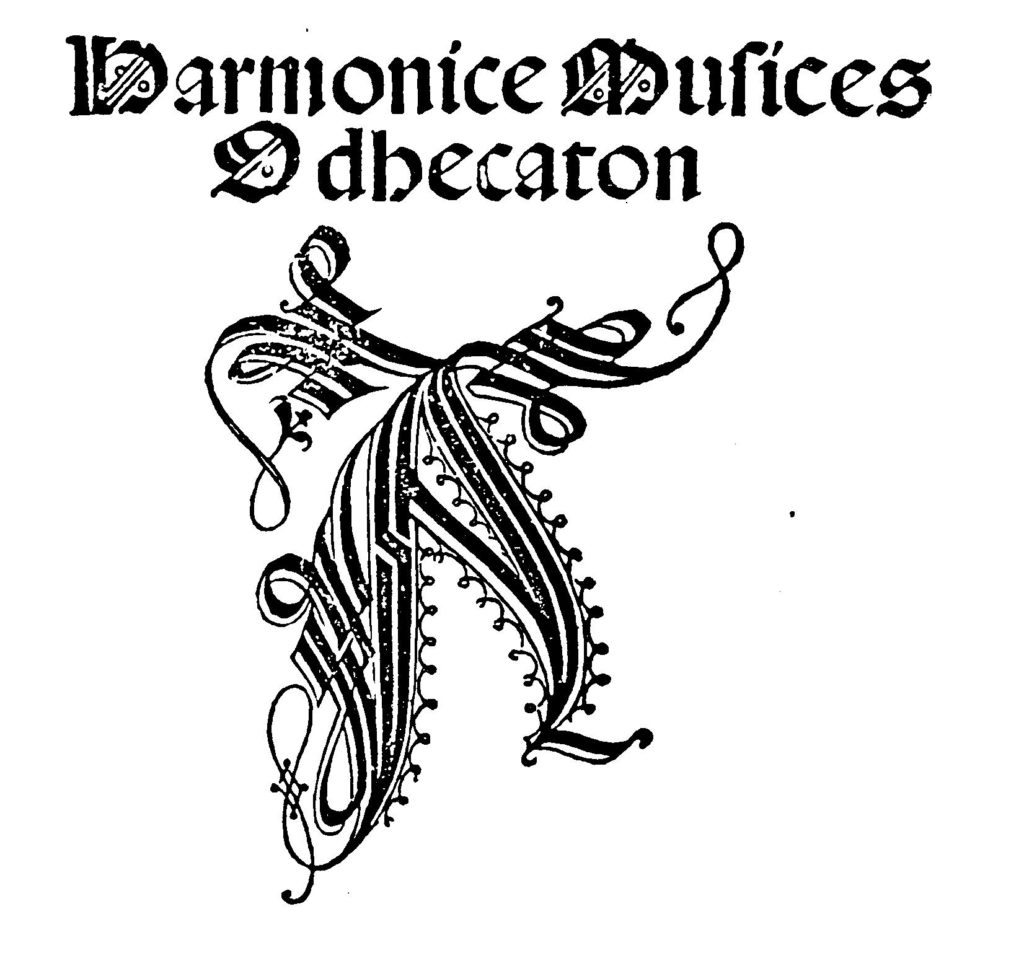
On May 15, 1501 – 522 years ago today – the first polyphonic (that is, multi-part) music printed using moveable type was released to the public by the Venice-based publisher Ottaviano dei Petrucci. (The publication features a dedication dated May 15, 1501, so we assume that this corresponds with its release date.) The publication was an anthology of works entitled Harmonice musices odhecaton A, meaning “One Hundred Pieces of Harmonic Music, Volume A”. (Volumes “B” and “C” followed in 1502 and 1503, respectively). In fact, “One Hundred Pieces of Harmonic Music, Volume A” consists of 96 (not “100”, as the title claims) instrumental works and French-language songs by some of the most famous composers of the day, as well as some anonymous works as well. Those famous composers represented in the anthology – which include Josquin de Prez, Johannes Ockeghem, Jacob Obrecht, Antoine Brumel, and Alexander Agricole – were all originally from northern France and southern Belgium: the so-called “Franco-Flemish” composers from the “oltre montani” (“the other side of the Alps”) who were so popular in Italy at the time.
I am aware that that previous, opening paragraph, filled with relatively obscure Italian and Franco-Flemish names, musicological rubric, and featuring an obscure, Latin-titled anthology – Harmonice musices odhecaton A -might have crossed your eyes and loosened your bladders even as it threatened to put you to sleep.
But!
But, but!
But in fact, the publication of “One Hundred Pieces of Harmonic Music, Volume A” in 1501 was a huge, big deal in the history of Western music, an event we can accurately call a “game changer”!
In reference to human evolution and development, there have been all sorts of large-case game changers: the control of fire; the invention of clothing; the development of tools and the invention of the wheel; the rise of agriculture; the ability to smelt, forge, and alloy metals; the harnessing of steam, and so forth. But I would argue that collectively, the most important game-changers in the evolution and development of humanity have to do with information transfer, starting with the development of language.
While it now appears likely that our ancestor homo erectus “invented” some sort of “grunted” language as long as 2 million years ago, complex language only emerged among the most loquacious of human species – that being we homo sapiens – some 150,000 years ago, as a systematic way for modern humans to communicate.
Next to language, sliced bread as a game changer is, well, overrated. …
Continue reading, and listen without interruption, only on Patreon!
Become a Patron!Listen and Subscribe to the Music History Monday Podcast
Podcast: Play in new window
Subscribe: Apple Podcasts | Spotify | Pandora | iHeartRadio | RSS | More
Related Robert Greenberg Courses
-
 How to Listen to and Understand Great Music, 3rd EditionPrice range: $349.95 through $599.95
How to Listen to and Understand Great Music, 3rd EditionPrice range: $349.95 through $599.95 -
 Understanding the Fundamentals of MusicPrice range: $199.95 through $319.95
Understanding the Fundamentals of MusicPrice range: $199.95 through $319.95 -
 Music as a Mirror of HistoryPrice range: $219.95 through $334.95
Music as a Mirror of HistoryPrice range: $219.95 through $334.95
